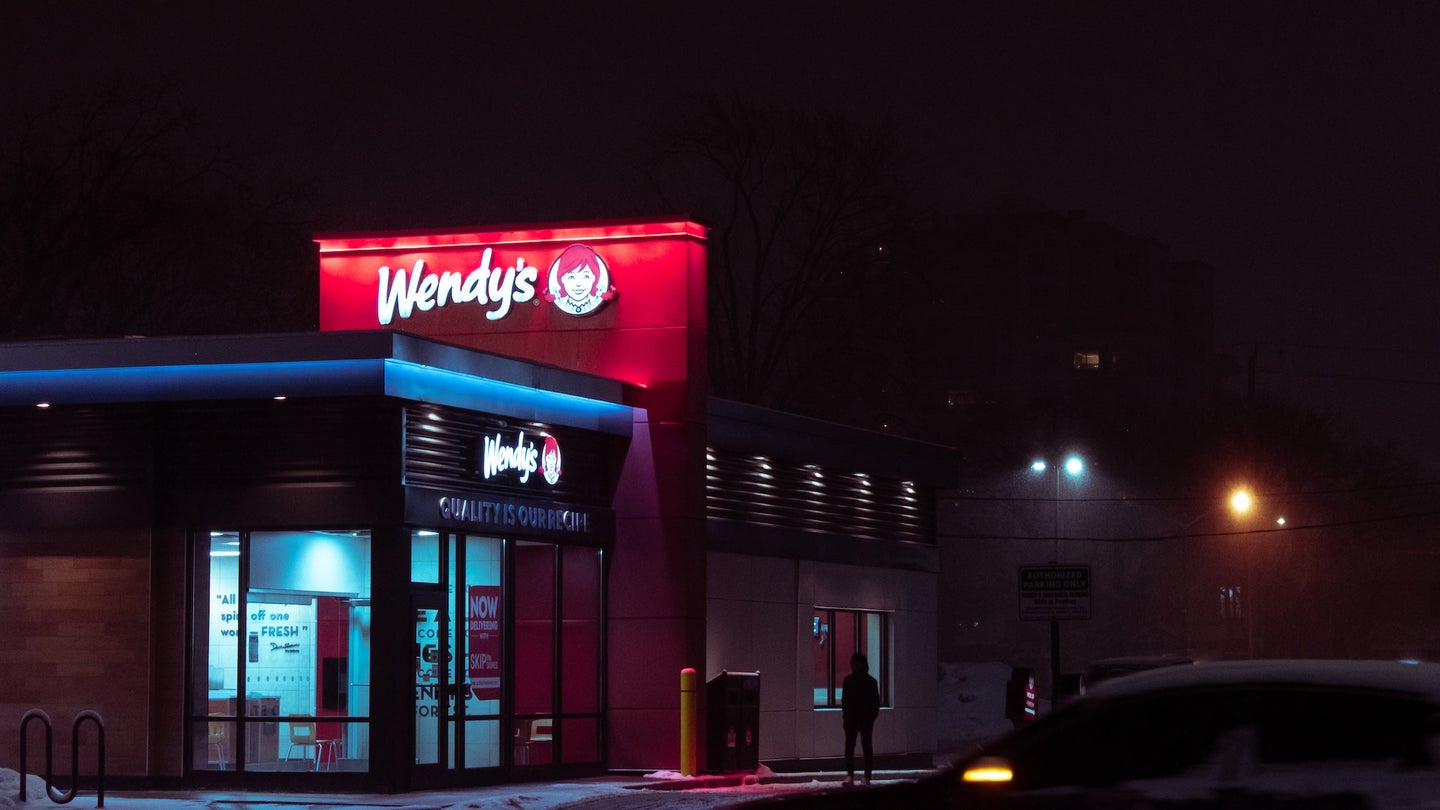Wendy’s wants underground robots to deliver food to your car
The concept is similar to a pneumatic tube system.

Wendy’s announced this week that it is going to try using underground autonomous robots to speed up how customers collect online orders. The burger joint plans to pilot the system designed by “hyperlogistics” company Pipedream, and aims to be able to send food from the kitchen to designated parking spots.
Wendy’s seems to be on a quest to become the most technologically advanced fast food restaurant in the country. Last week, it announced that it had partnered with Google to develop its own AI system (called Wendy’s FreshAI) that could take orders at a drive-thru. This week, it’s going full futuristic. (Pipedream’s current marketing line is “Someday we’ll use teleportation, until then we’ll use Pipedream.”)
According to a PR email sent to PopSci, digital orders now make up 11 percent of Wendy’s total sales and are growing. On top of the 75 to 80 percent of orders that are placed at a drive-thru.
The proposed autonomous system aims “to make digital order pick-up fast, reliable and invisible.” When customers or delivery drivers are collecting an online order, they pull into a dedicated parking spot with an “Instant Pickup portal,” where there will be a drive-thru style speaker and kiosk to confirm the order with the kitchen. In a matter of seconds, the food is then sent out by robots moving through an underground series of pipes using “Pipedream’s temperature-controlled delivery technology.” The customer can then grab their order from the kiosk without ever leaving their car. Apparently, the “first-of-its-kind delivery system” is designed so that drinks “are delivered without a spill and fries are always Hot & Crispy.”
[Related: What robots can and can’t do for a restaurant]
Wendy’s is far from the first company to try and use robots to streamline customer orders, though most go further than the parking lot. Starship operates a delivery service on 28 university campuses while Uber Eats is still trialing sidewalk delivery robots in Miami, Florida; Fairfax, Virginia; and Los Angeles, California. Whether these knee-height six-wheeled electric autonomous vehicles can graduate from school and make it into the real world remains to be seen.
The other big semi-autonomous delivery bets are aerial drones. Wing, a subsidiary of Google-parent Alphabet, unveiled a device called the Auto-Loader earlier this year. It also calls for a dedicated parking spot and aims to make it quicker and easier for staff at partner stores to attach deliveries to one of the company’s drones.
What sets Wendy’s and Pipedream’s solution apart is that it all happens in a space that the restaurant controls. Starship, Uber Eats, and Wing are all trying to bring robots out into the wider world where they can get attacked by students, take out power lines, and otherwise have to deal with humans, street furniture, and the chaos of existence. Providing Wendy’s abides by building ordinances and any necessary health and safety laws, cost is the only stopping them adding tube-dwelling robots to every restaurant the company controls. Really, the option Wendy’s is trialing has more in common with a pneumatic tube system—hopefully it will be a bit more practical.
